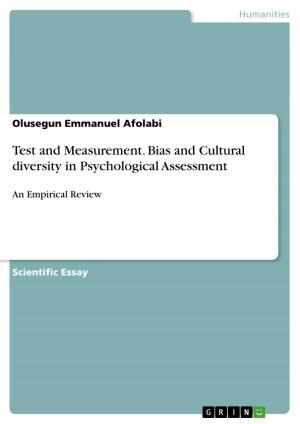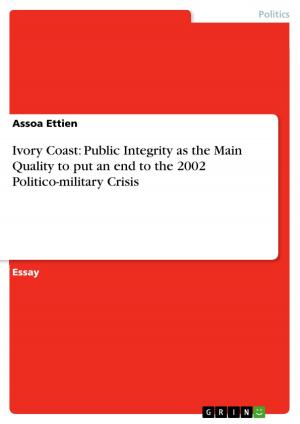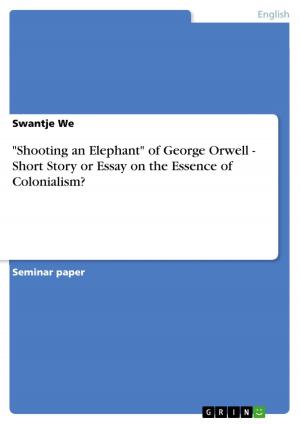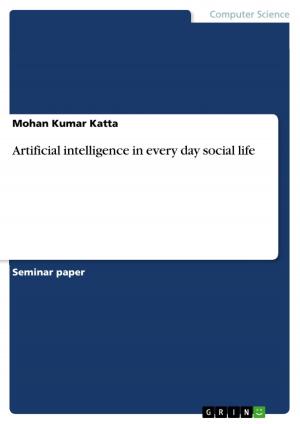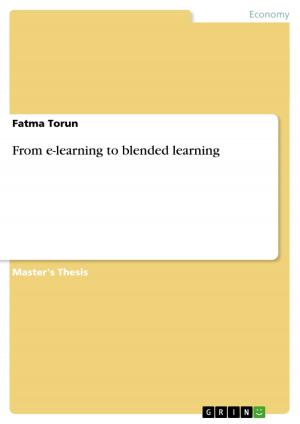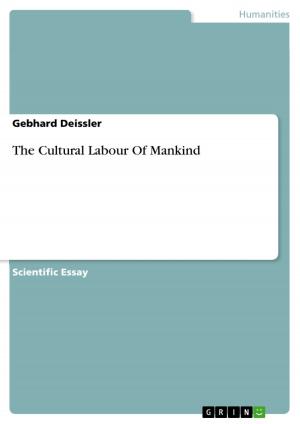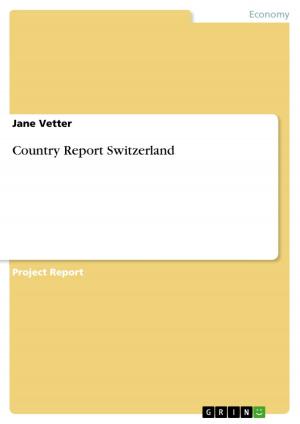Dennis O'Rourke's methods and objects in 'The Good Woman of Bangkok' - a 'Documentary fiction' film?
a 'Documentary fiction' film?
Nonfiction, Entertainment, Drama, Anthologies| Author: | Katharina Berger | ISBN: | 9783640220144 |
| Publisher: | GRIN Publishing | Publication: | November 26, 2008 |
| Imprint: | GRIN Publishing | Language: | English |
| Author: | Katharina Berger |
| ISBN: | 9783640220144 |
| Publisher: | GRIN Publishing |
| Publication: | November 26, 2008 |
| Imprint: | GRIN Publishing |
| Language: | English |
Seminar paper from the year 2006 in the subject English Language and Literature Studies - Other, grade: 1,7, LMU Munich, 14 entries in the bibliography, language: English, abstract: Our presentation was about the film The Good Woman of Bangkok, the unique way the filmmaker Dennis O'Rourke made the film and how the critics reacted to these unique methods. When it came to deciding on paper topics, I knew I wanted to write about O'Rourke and his special methods, because I was especially fascinated by the man and his unique methods. I think, it is very interesting to get to know something about O'Rourke's life fist and how and when the development from a celebrated 'mainstream' filmmaker to a much criticized experimental filmmaker took place. Also, it is essential to examine the ideas and opinions that influenced his decision to make such a film. Reading and talking so much about O'Rourke's special methods and strategies in The Good Woman of Bangkok made me curious about the documentary genre in general, whether this film is indeed so special and if his forerunners were working in a completely different direction? After describing O'Rourke's methods and objects, I will define 'the documentary' and examine the different modes of documentary film to see if The Good Woman of Bangkok actually is a documentary film and if it can be categorized as one of these modes. I hope this will shed some light on the question, whether O'Rourke's film is as revolutionary as he puts it or if it is fashionable to provoke and agitate the viewers in the documentary genre in general. [...]
Seminar paper from the year 2006 in the subject English Language and Literature Studies - Other, grade: 1,7, LMU Munich, 14 entries in the bibliography, language: English, abstract: Our presentation was about the film The Good Woman of Bangkok, the unique way the filmmaker Dennis O'Rourke made the film and how the critics reacted to these unique methods. When it came to deciding on paper topics, I knew I wanted to write about O'Rourke and his special methods, because I was especially fascinated by the man and his unique methods. I think, it is very interesting to get to know something about O'Rourke's life fist and how and when the development from a celebrated 'mainstream' filmmaker to a much criticized experimental filmmaker took place. Also, it is essential to examine the ideas and opinions that influenced his decision to make such a film. Reading and talking so much about O'Rourke's special methods and strategies in The Good Woman of Bangkok made me curious about the documentary genre in general, whether this film is indeed so special and if his forerunners were working in a completely different direction? After describing O'Rourke's methods and objects, I will define 'the documentary' and examine the different modes of documentary film to see if The Good Woman of Bangkok actually is a documentary film and if it can be categorized as one of these modes. I hope this will shed some light on the question, whether O'Rourke's film is as revolutionary as he puts it or if it is fashionable to provoke and agitate the viewers in the documentary genre in general. [...]



